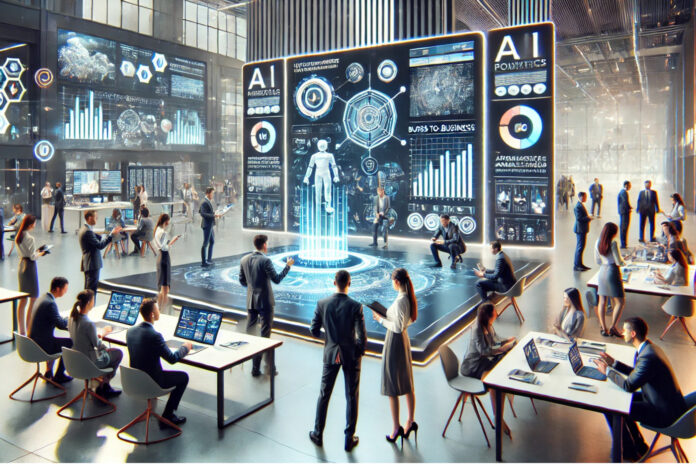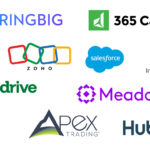Let’s address the elephant in the room: Some people think business-to-business (B2B) marketing is dull and tedious. Compared to consumer marketing, you’re dealing with longer, more complex sales cycles, the target audience is more niche with specialized needs, and customization and expertise are essential. B2B marketing also carries higher stakes, requiring your marketing strategy to address multiple decision-makers within prospective customer organizations.
But, approached the right way, B2B marketing can be fun and even exciting. Emerging technologies and methods present opportunities for ancillary businesses to tap into new strategies that may reduce the effort needed to reap the same rewards. From collaborating with artificial intelligence (AI) to streamline processes, using brand activation to help your business stand out, and investing in personal branding, there are creative, non-boring ways to get your B2B message across.
Despite being around for many years, artificial intelligence only recently made a big splash in the business world with the arrival of new applications like OpenAI’s ChatGPT, Microsoft’s Copilot, Google’s Gemini, and so on. AI already has delivered some interesting opportunities to the cannabis industry. Green Rush Consulting, based in Las Vegas, is perfecting technology to take on 70 percent of the complex work required for cannabis licensing. Massachusetts-based Bloom Automation Inc., an agri-tech company specializing in trimming equipment, released a suite of algorithms to visually analyze flower for faster, more accurate machine trimming.
Whether you choose to employ the technology to make your marketing processes more efficient or implement its use in other innovative ways, AI easily can play a role in growing your business efficiently. Understanding how to combine AI’s algorithmic insights with human expertise is the key to success. Rather than replacing jobs, AI should be seen as a tool that enhances human capabilities, allowing teams to focus on creativity, strategy, and relationship-building. As AI-driven technologies evolve, keeping up to date about the technology’s latest trends is crucial for businesses that want to remain competitive and avoid falling behind in an increasingly tech-driven world.
As the marketplace becomes increasingly saturated, ancillary businesses are stuck in a sea of noise. Your clients are hearing the same overused promises of high quality, tailored solutions and expertise, leading to brand fatigue and a sense of disillusionment. The result is a significant plateau in engagement and loyalty. Brand activation can help. “Brand activation” refers to the strategic process of bringing a brand to life through interactions with your target audience. The goal is to enhance brand awareness, loyalty, and equity, going beyond traditional advertising tactics by encouraging direct participation and involvement from customers.
Whether it’s interactive experiences, hosting memorable events, or running unconventional campaigns, activating your brand can be enjoyable for everyone involved. Successful campaigns align with the brand’s values and messaging while resonating with the preferences and interests of the target group.
You can tap into brand activation without being physically present, such as through virtual tours, interactive product demos, webinars, and other immersive experiences. These activations go beyond just marketing buzzwords; they allow companies to “walk the walk,” showcasing real expertise and innovative thinking.
Ultimately, the future of B2B marketing requires finding opportunities to form stronger, lasting partnerships with prospects and current clients by creating memorable experiences that deepen professional relationships and elevate brand perception.
In today’s B2B marketing landscape, consumers and business partners prefer to connect with real people rather than faceless corporate profiles. While company pages serve their purpose, they often lack the personal touch that fosters trust and genuine relationships. That’s why we expect to see ancillary brands that push their employees out into the market as brand ambassadors race ahead. From on-the-ground staff to high-level executives, encourage your team to build personal brands. Not only is this beneficial for their individual careers, but it also helps keep your business top of mind among their network of contacts.
Employee advocacy not only drives brand visibility but also creates personal connections that resonate more deeply than traditional marketing efforts. When employees become brand ambassadors, they enhance the company’s credibility by offering relatable, trustworthy points of contact. Building direct, personal relationships with B2B partners strengthens business connections, and this authenticity can be much more effective than any corporate page or polished press release.
It’s no secret that those who move first have a better chance of staying ahead of the pack. Leveraging AI to enhance human decision-making, creating innovative brand activations, and investing in employee thought leadership will help drive long-term growth and credibility as we step into a new era of marketing.
Now is the time for businesses to evaluate how they can integrate these strategies to remain competitive and innovative. While we can’t predict every shift in the industry, we can stay ahead by recognizing and acting on the trends we see today, setting the stage for sustained success in an ever-changing landscape.

Dan Serard is vice president of sales and marketing for Cannabis Creative Group, an award-winning marketing agency. A six-year veteran of the cannabis industry, he is a member of professional organizations including the Cannabis Marketing Association, Rolling Stone Culture Council, and the National Association of Cannabis Businesses.












